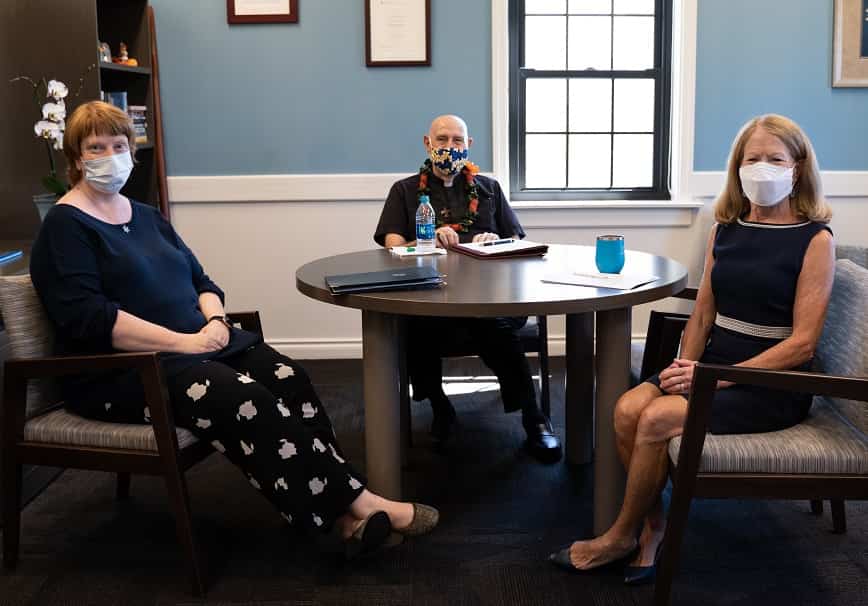
From working late to offer one-on-one tutoring to incorporating exciting new digital tools into her classroom to inspiring students to be passionate about learning, Maryknoll School seventh-grade math and religion teacher Mary Jane Vannatta goes above and beyond to make sure her students succeed.
And all that hard work hasn’t gone unnoticed, especially during the pandemic.
For her selfless dedication to students and tireless mentorship to fellow educators, the 40-year veteran of Hawaii Catholic schools was named the 2021 Hawaii Catholic Schools Teacher of the Year.
After being honored in a virtual ceremony May 27, Vannatta received the award in-person June 2.

In addition to accepting the Golden Pineapple Trophy from Chaminade University, Vannatta was awarded $1,000 from John C. and Marilou Brogan through Chaminade, a one-year car lease from Aloha Kia and $1,000 in gas gift cards from Hele-Par Hawaii. The Augustine Education Foundation also awarded $1,500 to Maryknoll School for faculty appreciation in recognition of Vannatta’s achievement.
Nominators said Vannatta is a caring, loving educator whose world revolves around her students.
One said that she incorporates a host of different tools to ensure students thrive in the subjects she teaches, including math. And during the pandemic, her workload increased exponentially as she learned new devices and programs to teach both distance learning and in-person students at the same time.
What she doesn’t know how to do, the nominator said, she’ll figure out so she can help her students.
Another nominator said Vannatta never hesitates to put in extra time for students—before school, after school and with remote help at all hours. If they need help, she’s there for them. And she’s done the same for her fellow educators, including as a mentor to new teachers and grade level chairperson.
Vannatta is an active member of the broader school community and of her parish.
And she can often be spotted at school events, many of which she has helped to plan.
Vannatta is also a lifelong learner, frequently attending professional development opportunities, looking to improve her religion instruction. She has completed courses to reach the Master Catechist level as she seeks to help guide her students to be thoughtful, ethical citizens of strong moral character.
Mary Jane Vannatta was also featured in MidWeek. Read the article here.













